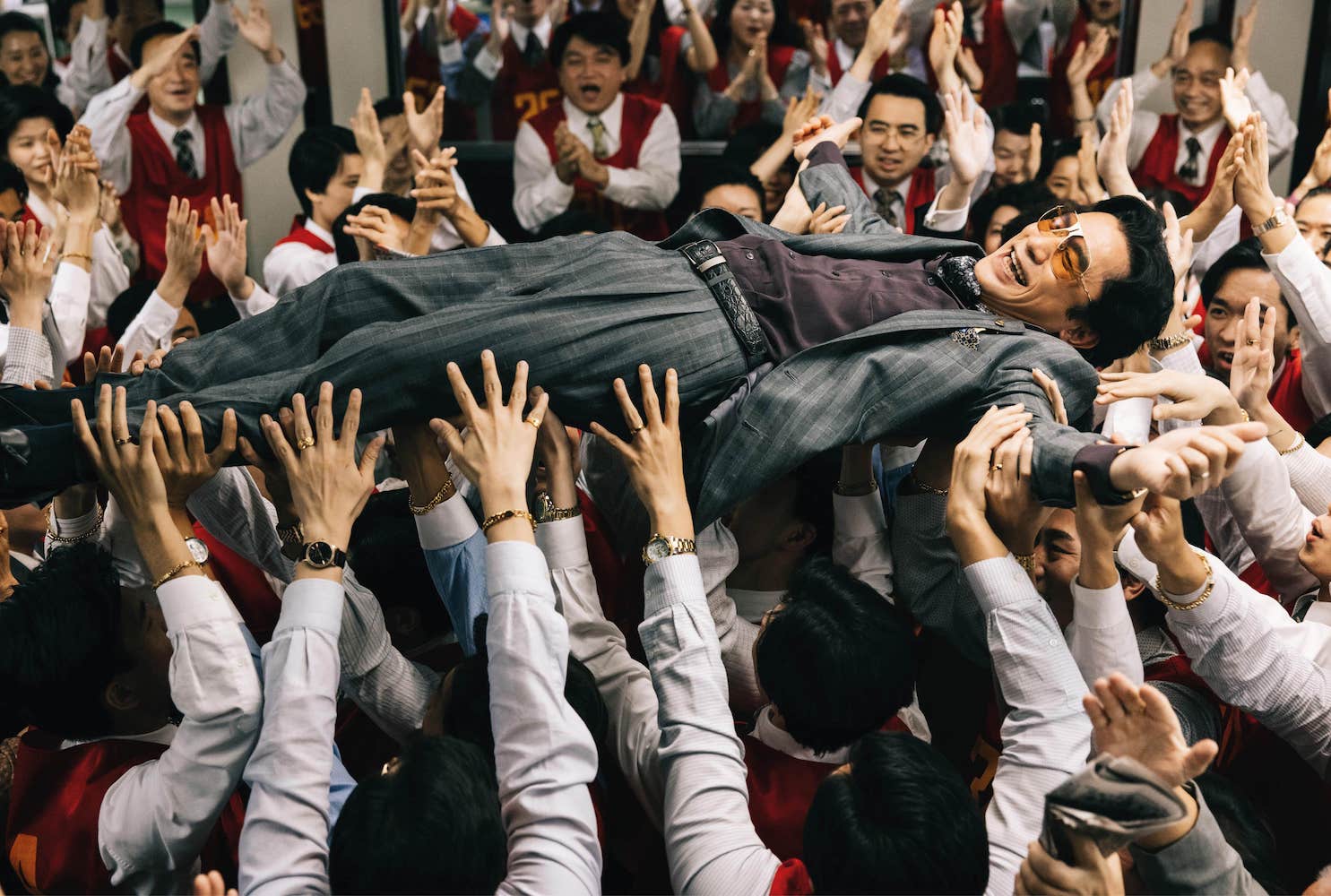Pacino and de Niro. Affleck and Damon. There are a multitude of acting duos who make magic on-screen and are electric when they are together. In Hong Kong cinema, one of the most iconic duos is Tony Leung and Andy Lau, who reunite for the first time since the Infernal Affairs trilogy in The Goldfinger.
Since they starred together in the crime drama Infernal Affairs (later remade by Martin Scorsese as the Academy Award-winning The Departed), Leung and Lau have shared a 40-year-long friendship, while solidifying their status as legends of Hong Kong cinema. Their latest film, directed by Infernal Affairs co-writer Felix Chong, is inspired by Hong Kong businessman George Tan. The Goldfinger is set in the 1970s, following the story of a Hong Kong corporation that rose rapidly before collapsing shortly afterwards due to a corruption scandal uncovered by the Independent Commission Against Corruption (ICAC).

When the film opens in 1970s Hong Kong, corruption was rife while the country was under British rule, so the ICAC was formed to combat this issue in the public and private sectors. This friction allows Chong to establish the respective hero and bad guy of the piece – ICAC agent Lau Kai Yuen (Lau) and conglomerate businessman Ching Yat-yin (Leung).
As The Goldfinger explores Ching’s backstory through a non-linear narrative, it ironically rings a similar bell to Scorsese’s The Wolf of Wall Street – put simply, an immoral rag-to-riches story. At the centre of it is Ching, a Chinese businessman who arrives in Hong Kong with few connections, a history of failed businesses and a desperation to succeed. This greed and ambition form the basis of his long-standing partnership with property developer Tsang Kim Liu (Simon Yam), where they take advantage of Hong Kong’s crumbling property market by buying land and selling it back to the government for profit.
Despite the deviousness of their crime, a rapid shift in the film’s pace diminishes the severity of Tsang and Ching’s scheme to accommodate the next era of their partnership – notably, their involvement in the Hong Kong stock market, which evokes the comparisons with Scorsese’s profanity-filled biopic but with louder shouting and fewer bouts of coke-fuelled insanity. However, an imbalance in Chong’s direction and screenplay, amid the chaos of Ching and his growing band of associates manipulating the stock market, results in a somewhat convoluted narrative. This sporadically distracts audiences from understanding the depth of their crimes while allowing their selfishness and greed to feed their cockiness, ultimately leading to an unfulfilling conclusion.

The biggest draw of The Goldfinger is easily the reunion of its leading men. In contrast to Infernal Affairs, Leung and Lau’s roles are reversed here, with the Shang-Chi and the Legend of the Ten Rings star taking on the flamboyant but complex role of the charismatic criminal, while Lau’s straight-laced police officer struggles to juggle work and his floundering family life. Although they only have a handful of scenes together, the combination of their chalk-and-cheese roles and equally gripping performances keeps the audiences on their toes.
In terms of visuals, Chong’s temperamental direction is rescued by Anthony Pun’s cinematography, which captures the tumultuous cityscape of 1970s Hong Kong. With an immaculate production design, and shots ranging from the working-class hubbub of Tai Po to the refined luxury of Hong Kong’s Peninsula Hotel, both Pun and Chong capture the juxtaposition (and fragility) of the country’s financial situation – brilliantly recreating the playground for the film’s ever-present themes of corruption and greed.
With an air similar to The Wolf of Wall Street, The Goldfinger‘s chaos is matched by the beguiling on-screen reunion of Tony Leung and Andy Lau, driving this glamorous yet entertaining production.
RATING – 3.5 Pocky

Katie Smith-Wong is a British-born Chinese female film critic who wishes to increase Asian representation in Western cinema. Smith-Wong is also a member of the OAFFC, OFCS, and London Film Critics Circle.





































